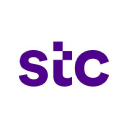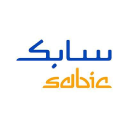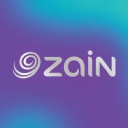7020.SR

Etihad Etisalat Company
7020.SR
(3.0)52,90 SAR
8.17% ROA
14.56% ROE
15.32x PER
39.347.000.000,00 SAR
43.72% DER
4.6% Yield
14.7% NPM
Etihad Etisalat Company Stock Analysis
Etihad Etisalat Company Fundamental Analysis
Fundamental analysis in stock investing is like studying the foundation of a house before buying it. It involves looking at a company's financial health, like its earnings, assets, and debts, to determine if it's a good investment based on its fundamental strength and potential for growth.
| # | Analysis | Rating |
|---|---|---|
| 1 |
Revenue Growth
With a track record of consistent revenue growth in the past five years, this company presents a compelling opportunity. |
|
| 2 |
Net Profit Growth
Throughout the past five years, this company has consistently experienced net profit growth, indicating a strong financial performance and making it an attractive investment prospect. |
|
| 3 |
ROE
The stock's ROE falls within an average range (12.58%), demonstrating satisfactory profitability and efficiency in utilizing shareholders' equity. |
|
| 4 |
ROA
The stock's ROA (6.43%) indicates that it's doing well in making money from the things it owns. This makes it a good option to invest and make consistent profits. |
|
| 5 |
PBV
The stock's PBV ratio (2.16x) indicates a justifiable valuation, presenting a compelling choice for investors seeking reasonable returns. |
|
| 6 |
DER
The stock maintains a fair debt to equity ratio (69%), indicating a reasonable balance between the money it owes and the ownership it possesses. |
|
| 7 |
Assets Growth
Company's revenue has experienced consistent growth over the last three years, indicating a favorable financial trajectory and making it an attractive investment choice. |
|
| 8 |
Dividend Growth
With a history of consistent dividend increases over the last three years, the company has proven to be a reliable choice for investors seeking reliable income. |
|
| 9 |
Dividend
Investors can rely on the company's consistent dividend payments over the past three years, offering a steady stream of returns. |
|
| 10 |
Buffet Intrinsic Value
Warren Buffett's formula suggests that the company's stock is undervalued (2.779), making it an appealing investment prospect with its intrinsic value surpassing the current market price. |
|
| 11 |
Graham Number
The Graham number of this company suggests that its stock price may be overvalued, indicating a less favorable investment opportunity. |
Etihad Etisalat Company Technical Analysis
Technical analysis in stock investing is like reading the patterns on a weather map to predict future weather conditions. It involves studying past stock price movements and trading volumes to make predictions about where a stock's price might go next, without necessarily looking at the company's financial health.
| # | Analysis | Recommendation |
|---|---|---|
| 1 | Awesome Oscillator | Hold |
| 2 | MACD | Sell |
| 3 | RSI | Hold |
| 4 | Stoch RSI | Buy |
Etihad Etisalat Company Price Chart
Financial Statements
Financial statements are like report cards for companies. They show how much money a company makes (income statement), what it owns and owes (balance sheet), and where it spends its money (cash flow statement), helping stock investors understand if a company is healthy and worth investing in.
Income Statements
An income statement for a company is like a scoreboard for its profits and losses. It shows how much money the company made (revenue) and how much it spent to make that money (expenses), helping stock investors see if a company is making a profit or not.
Revenue in stock investing is the total amount of money a company earns from its sales, and it's a key factor that investors consider to assess a company's financial performance and growth potential.
| Year | Revenue | Growth |
|---|---|---|
| 2006 | 5.840.815.000 | |
| 2007 | 8.440.432.000 | 30.8% |
| 2008 | 10.794.539.000 | 21.81% |
| 2009 | 13.058.256.000 | 17.34% |
| 2010 | 16.013.138.000 | 18.45% |
| 2011 | 20.052.254.000 | 20.14% |
| 2012 | 23.642.133.000 | 15.18% |
| 2013 | 25.190.853.000 | 6.15% |
| 2014 | 15.748.831.000 | -59.95% |
| 2015 | 14.424.125.000 | -9.18% |
| 2016 | 12.569.397.000 | -14.76% |
| 2017 | 11.351.301.000 | -10.73% |
| 2018 | 11.864.912.000 | 4.33% |
| 2019 | 13.449.974.000 | 11.78% |
| 2020 | 14.046.168.000 | 4.24% |
| 2021 | 14.834.056.000 | 5.31% |
| 2022 | 15.668.915.000 | 5.33% |
| 2023 | 16.399.576.000 | 4.46% |
| 2023 | 16.762.681.000 | 2.17% |
| 2024 | 17.860.816.000 | 6.15% |
Research and Development Expenses are the costs a company incurs to create and improve its products or services, which can be important for investors to evaluate a company's innovation and potential for future growth.
| Year | Research and Development Expenses | Growth |
|---|---|---|
| 2006 | 0 | |
| 2007 | 0 | 0% |
| 2008 | 0 | 0% |
| 2009 | 0 | 0% |
| 2010 | 0 | 0% |
| 2011 | 0 | 0% |
| 2012 | 0 | 0% |
| 2013 | 0 | 0% |
| 2014 | 0 | 0% |
| 2015 | 0 | 0% |
| 2016 | 0 | 0% |
| 2017 | 0 | 0% |
| 2018 | 0 | 0% |
| 2019 | 0 | 0% |
| 2020 | 0 | 0% |
| 2021 | 0 | 0% |
| 2022 | 0 | 0% |
| 2023 | 0 | 0% |
| 2023 | 0 | 0% |
| 2024 | 0 | 0% |
General and Administrative Expenses are the costs a company incurs to run its day-to-day operations, such as office rent, salaries, and utilities, which investors consider to understand a company's overall efficiency and management effectiveness.
| Year | General and Administrative Expenses | Growth |
|---|---|---|
| 2006 | 0 | |
| 2007 | 0 | 0% |
| 2008 | 0 | 0% |
| 2009 | 9.204.772.000 | 100% |
| 2010 | 1.522.827.000 | -504.45% |
| 2011 | 1.784.031.000 | 14.64% |
| 2012 | 2.045.771.000 | 12.79% |
| 2013 | 2.222.759.000 | 7.96% |
| 2014 | 3.822.181.000 | 41.85% |
| 2015 | 3.574.936.000 | -6.92% |
| 2016 | 2.143.091.000 | -66.81% |
| 2017 | 1.683.768.000 | -27.28% |
| 2018 | 747.384.000 | -125.29% |
| 2019 | 508.273.000 | -47.04% |
| 2020 | 525.184.000 | 3.22% |
| 2021 | 670.606.000 | 21.69% |
| 2022 | 729.080.000 | 8.02% |
| 2023 | 1.427.304.000 | 48.92% |
| 2023 | 230.456.000 | -519.34% |
| 2024 | 1.317.896.000 | 82.51% |
EBITDA stands for Earnings Before Interest, Taxes, Depreciation, and Amortization. It is a measure that helps stock investors analyze a company's profitability by looking at its earnings without considering certain expenses. This helps to get a clearer picture of the company's financial performance and its ability to generate cash flow.
| Year | EBITDA | Growth |
|---|---|---|
| 2006 | 1.681.596.000 | |
| 2007 | 4.742.390.000 | 64.54% |
| 2008 | 5.765.327.000 | 17.74% |
| 2009 | 5.402.063.000 | -6.72% |
| 2010 | 6.235.071.000 | 13.36% |
| 2011 | 7.500.043.000 | 16.87% |
| 2012 | 8.655.668.000 | 13.35% |
| 2013 | 9.447.533.000 | 8.38% |
| 2014 | 3.060.014.000 | -208.74% |
| 2015 | 3.062.575.000 | 0.08% |
| 2016 | 4.084.776.000 | 25.02% |
| 2017 | 3.647.362.000 | -11.99% |
| 2018 | 4.649.989.000 | 21.56% |
| 2019 | 5.076.212.000 | 8.4% |
| 2020 | 5.362.912.000 | 5.35% |
| 2021 | 5.701.987.000 | 5.95% |
| 2022 | 6.323.831.000 | 9.83% |
| 2023 | 6.771.820.000 | 6.62% |
| 2023 | 6.624.520.000 | -2.22% |
| 2024 | 5.680.000.000 | -16.63% |
Gross profit is the money a company makes from selling its products or services after subtracting the cost of producing or providing them, and it is an important measure for investors to understand a company's profitability.
| Year | Gross Profit | Growth |
|---|---|---|
| 2006 | 3.179.631.000 | |
| 2007 | 4.648.239.000 | 31.59% |
| 2008 | 6.021.054.000 | 22.8% |
| 2009 | 7.546.550.000 | 20.21% |
| 2010 | 8.783.421.000 | 14.08% |
| 2011 | 10.324.422.000 | 14.93% |
| 2012 | 12.033.806.000 | 14.2% |
| 2013 | 12.948.166.000 | 7.06% |
| 2014 | 8.641.664.000 | -49.83% |
| 2015 | 7.958.088.000 | -8.59% |
| 2016 | 7.425.285.000 | -7.18% |
| 2017 | 6.530.307.000 | -13.7% |
| 2018 | 6.582.203.000 | 0.79% |
| 2019 | 7.799.987.000 | 15.61% |
| 2020 | 8.152.408.000 | 4.32% |
| 2021 | 8.671.515.000 | 5.99% |
| 2022 | 9.363.356.000 | 7.39% |
| 2023 | 9.446.008.000 | 0.87% |
| 2023 | 5.804.629.000 | -62.73% |
| 2024 | 9.511.836.000 | 38.97% |
Net income in stock investing is like the money a company actually gets to keep as profit after paying all its bills, and it's an important measure to understand how well a company is doing financially.
| Year | Net Profit | Growth |
|---|---|---|
| 2006 | 700.358.000 | |
| 2007 | 1.379.548.000 | 49.23% |
| 2008 | 2.091.783.000 | 34.05% |
| 2009 | 3.013.872.000 | 30.59% |
| 2010 | 4.211.482.000 | 28.44% |
| 2011 | 5.083.459.000 | 17.15% |
| 2012 | 6.017.653.000 | 15.52% |
| 2013 | 6.676.553.000 | 9.87% |
| 2014 | -913.431.000 | 830.93% |
| 2015 | -1.093.125.000 | 16.44% |
| 2016 | -202.980.000 | -438.54% |
| 2017 | -708.941.000 | 71.37% |
| 2018 | -122.666.000 | -477.94% |
| 2019 | 31.183.000 | 493.37% |
| 2020 | 783.254.000 | 96.02% |
| 2021 | 1.071.541.000 | 26.9% |
| 2022 | 1.656.940.000 | 35.33% |
| 2023 | 2.095.320.000 | 20.92% |
| 2023 | 2.231.977.000 | 6.12% |
| 2024 | 2.644.476.000 | 15.6% |
EPS, or earnings per share, is a measure that shows how much profit a company has earned for each outstanding share of its stock, and it is important for stock investors as it helps understand the profitability of a company and compare it with other companies in the market.
| Year | Earning per Share (EPS) | Growth |
|---|---|---|
| 2006 | 3 | |
| 2007 | 6 | 50% |
| 2008 | 9 | 33.33% |
| 2009 | 13 | 30.77% |
| 2010 | 19 | 27.78% |
| 2011 | 7 | -200% |
| 2012 | 8 | 14.29% |
| 2013 | 8 | 0% |
| 2014 | -1 | 800% |
| 2015 | -1 | 0% |
| 2016 | 0 | 0% |
| 2017 | -1 | 0% |
| 2018 | 0 | 0% |
| 2019 | 0 | 0% |
| 2020 | 1 | 100% |
| 2021 | 1 | 0% |
| 2022 | 2 | 50% |
| 2023 | 3 | 0% |
| 2023 | 3 | 0% |
| 2024 | 3 | 33.33% |
Cashflow Statements
Cashflow statements show the movement of money in and out of a company, helping stock investors understand how much money a company makes and spends. By examining cashflow statements, investors can assess if a company is generating enough cash to pay its bills, invest in growth, and provide returns to stockholders.
Free cash flow is the leftover cash that a company generates after covering its operating expenses and capital expenditures, which is important for stock investors as it shows how much money a company has available to invest in growth, pay dividends, or reduce debt.
| Year | Free Cashflow | Growth |
|---|---|---|
| 2006 | 472.805.000 | |
| 2007 | 276.861.000 | -70.77% |
| 2008 | 592.992.000 | 53.31% |
| 2009 | 953.484.000 | 37.81% |
| 2010 | 2.182.368.000 | 56.31% |
| 2011 | 2.972.801.000 | 26.59% |
| 2012 | 1.866.878.000 | -59.24% |
| 2013 | 1.570.854.000 | -18.84% |
| 2014 | 1.217.378.000 | -29.04% |
| 2015 | 1.384.754.000 | 12.09% |
| 2016 | -1.586.595.000 | 187.28% |
| 2017 | 1.253.720.000 | 226.55% |
| 2018 | 1.701.625.000 | 26.32% |
| 2019 | 1.404.363.000 | -21.17% |
| 2020 | 723.700.000 | -94.05% |
| 2021 | 2.592.832.000 | 72.09% |
| 2022 | 3.252.911.000 | 20.29% |
| 2023 | 1.211.765.000 | -168.44% |
| 2023 | 3.866.989.000 | 68.66% |
| 2024 | 76.654.000 | -4944.73% |
Operating cash flow represents the cash generated or consumed by a company's day-to-day operations, excluding external investing or financing activities, and is crucial for stock investors as it shows how much cash a company is generating from its core business operations.
| Year | Operating Cashflow | Growth |
|---|---|---|
| 2006 | 1.928.010.000 | |
| 2007 | 2.153.202.000 | 10.46% |
| 2008 | 3.546.016.000 | 39.28% |
| 2009 | 4.245.597.000 | 16.48% |
| 2010 | 5.469.981.000 | 22.38% |
| 2011 | 6.673.098.000 | 18.03% |
| 2012 | 7.036.776.000 | 5.17% |
| 2013 | 5.534.531.000 | -27.14% |
| 2014 | 6.171.096.000 | 10.32% |
| 2015 | 4.958.067.000 | -24.47% |
| 2016 | 4.017.012.000 | -23.43% |
| 2017 | 3.594.414.000 | -11.76% |
| 2018 | 3.492.396.000 | -2.92% |
| 2019 | 3.509.106.000 | 0.48% |
| 2020 | 4.169.800.000 | 15.84% |
| 2021 | 4.812.157.000 | 13.35% |
| 2022 | 5.683.893.000 | 15.34% |
| 2023 | 1.528.502.000 | -271.86% |
| 2023 | 5.903.343.000 | 74.11% |
| 2024 | 646.099.000 | -813.69% |
Capex, short for capital expenditures, refers to the money a company spends on acquiring or upgrading tangible assets like buildings, equipment, or technology, which is important for stock investors as it indicates how much a company is investing in its infrastructure to support future growth and profitability.
| Year | Capital Expenditure | Growth |
|---|---|---|
| 2006 | 1.455.205.000 | |
| 2007 | 1.876.341.000 | 22.44% |
| 2008 | 2.953.024.000 | 36.46% |
| 2009 | 3.292.113.000 | 10.3% |
| 2010 | 3.287.613.000 | -0.14% |
| 2011 | 3.700.297.000 | 11.15% |
| 2012 | 5.169.898.000 | 28.43% |
| 2013 | 3.963.677.000 | -30.43% |
| 2014 | 4.953.718.000 | 19.99% |
| 2015 | 3.573.313.000 | -38.63% |
| 2016 | 5.603.607.000 | 36.23% |
| 2017 | 2.340.694.000 | -139.4% |
| 2018 | 1.790.771.000 | -30.71% |
| 2019 | 2.104.743.000 | 14.92% |
| 2020 | 3.446.100.000 | 38.92% |
| 2021 | 2.219.325.000 | -55.28% |
| 2022 | 2.430.982.000 | 8.71% |
| 2023 | 316.737.000 | -667.51% |
| 2023 | 2.036.354.000 | 84.45% |
| 2024 | 569.445.000 | -257.6% |
Balance Sheet
Balance sheets provide a snapshot of a company's financial health and its assets (such as cash, inventory, and property) and liabilities (like debts and obligations) at a specific point in time. For stock investors, balance sheets help assess the company's overall worth and evaluate its ability to meet financial obligations and support future growth.
Equity refers to the ownership interest or stake that shareholders have in a company, representing their claim on its assets and earnings after all debts and liabilities are paid.
| Year | Equity | Growth |
|---|---|---|
| 2006 | 4.532.979.000 | |
| 2007 | 5.912.527.000 | 23.33% |
| 2008 | 9.754.310.000 | 39.39% |
| 2009 | 12.243.182.000 | 20.33% |
| 2010 | 15.579.664.000 | 21.42% |
| 2011 | 18.388.123.000 | 15.27% |
| 2012 | 20.905.776.000 | 12.04% |
| 2013 | 23.963.329.000 | 12.76% |
| 2014 | 19.424.079.000 | -23.37% |
| 2015 | 15.560.766.000 | -24.83% |
| 2016 | 15.357.786.000 | -1.32% |
| 2017 | 14.253.837.000 | -7.74% |
| 2018 | 13.869.316.000 | -2.77% |
| 2019 | 13.751.350.000 | -0.86% |
| 2020 | 14.445.227.000 | 4.8% |
| 2021 | 15.196.246.000 | 4.94% |
| 2022 | 16.358.535.000 | 7.11% |
| 2023 | 16.912.739.000 | 3.28% |
| 2023 | 17.622.607.000 | 4.03% |
| 2024 | 17.765.356.000 | 0.8% |
Assets represent the valuable resources that a company owns, such as cash, inventory, property, and equipment, and understanding a company's assets helps investors assess its value and potential for generating future profits.
| Year | Assets | Growth |
|---|---|---|
| 2006 | 17.689.179.000 | |
| 2007 | 19.880.559.000 | 11.02% |
| 2008 | 27.191.549.000 | 26.89% |
| 2009 | 30.926.481.000 | 12.08% |
| 2010 | 33.430.447.000 | 7.49% |
| 2011 | 37.500.676.000 | 10.85% |
| 2012 | 38.623.098.000 | 2.91% |
| 2013 | 46.515.239.000 | 16.97% |
| 2014 | 47.494.627.000 | 2.06% |
| 2015 | 42.376.375.000 | -12.08% |
| 2016 | 41.192.713.000 | -2.87% |
| 2017 | 40.468.162.000 | -1.79% |
| 2018 | 38.564.869.000 | -4.94% |
| 2019 | 39.262.461.000 | 1.78% |
| 2020 | 38.415.896.000 | -2.2% |
| 2021 | 39.363.908.000 | 2.41% |
| 2022 | 39.769.155.000 | 1.02% |
| 2023 | 39.906.237.000 | 0.34% |
| 2023 | 38.817.134.000 | -2.81% |
| 2024 | 38.566.453.000 | -0.65% |
Liabilities refer to the financial obligations or debts that a company owes to creditors or external parties, and understanding a company's liabilities is important for investors as it helps assess the company's financial risk and ability to meet its obligations.
| Year | Liabilities | Growth |
|---|---|---|
| 2006 | 13.156.200.000 | |
| 2007 | 13.968.032.000 | 5.81% |
| 2008 | 17.437.239.000 | 19.9% |
| 2009 | 18.683.299.000 | 6.67% |
| 2010 | 17.850.783.000 | -4.66% |
| 2011 | 19.112.553.000 | 6.6% |
| 2012 | 17.717.322.000 | -7.87% |
| 2013 | 22.551.910.000 | 21.44% |
| 2014 | 28.070.548.000 | 19.66% |
| 2015 | 26.815.609.000 | -4.68% |
| 2016 | 25.834.927.000 | -3.8% |
| 2017 | 26.214.325.000 | 1.45% |
| 2018 | 24.695.553.000 | -6.15% |
| 2019 | 25.511.111.000 | 3.2% |
| 2020 | 23.970.669.000 | -6.43% |
| 2021 | 24.167.662.000 | 0.82% |
| 2022 | 23.410.620.000 | -3.23% |
| 2023 | 22.993.498.000 | -1.81% |
| 2023 | 21.194.527.000 | -8.49% |
| 2024 | 20.801.097.000 | -1.89% |
Etihad Etisalat Company Financial Ratio (TTM)
Valuation Metrics
- Revenue per Share
- 22.69
- Net Income per Share
- 3.34
- Price to Earning Ratio
- 15.32x
- Price To Sales Ratio
- 2.25x
- POCF Ratio
- 6.99
- PFCF Ratio
- 10.79
- Price to Book Ratio
- 2.21
- EV to Sales
- 2.68
- EV Over EBITDA
- 6.9
- EV to Operating CashFlow
- 8.32
- EV to FreeCashFlow
- 12.86
- Earnings Yield
- 0.07
- FreeCashFlow Yield
- 0.09
- Market Cap
- 39,35 Bil.
- Enterprise Value
- 46,88 Bil.
- Graham Number
- 41.61
- Graham NetNet
- -17.3
Income Statement Metrics
- Net Income per Share
- 3.34
- Income Quality
- 2.19
- ROE
- 0.15
- Return On Assets
- 0.07
- Return On Capital Employed
- 0.12
- Net Income per EBT
- 0.93
- EBT Per Ebit
- 0.87
- Ebit per Revenue
- 0.18
- Effective Tax Rate
- 0.07
Margins
- Sales, General, & Administrative to Revenue
- 0.01
- Research & Developement to Revenue
- 0
- Stock Based Compensation to Revenue
- 0
- Gross Profit Margin
- 0.5
- Operating Profit Margin
- 0.18
- Pretax Profit Margin
- 0.16
- Net Profit Margin
- 0.15
Dividends
- Dividend Yield
- 0.05
- Dividend Yield %
- 4.6
- Payout Ratio
- 0.01
- Dividend Per Share
- 2.35
Operating Metrics
- Operating Cashflow per Share
- 7.32
- Free CashFlow per Share
- 4.73
- Capex to Operating CashFlow
- 0.35
- Capex to Revenue
- 0.11
- Capex to Depreciation
- 0.56
- Return on Invested Capital
- 0.12
- Return on Tangible Assets
- 0.08
- Days Sales Outstanding
- 119.85
- Days Payables Outstanding
- 121.62
- Days of Inventory on Hand
- 9.82
- Receivables Turnover
- 3.05
- Payables Turnover
- 3
- Inventory Turnover
- 37.16
- Capex per Share
- 2.58
Balance Sheet
- Cash per Share
- 3,98
- Book Value per Share
- 23,07
- Tangible Book Value per Share
- 13.8
- Shareholders Equity per Share
- 23.07
- Interest Debt per Share
- 10.92
- Debt to Equity
- 0.44
- Debt to Assets
- 0.2
- Net Debt to EBITDA
- 1.11
- Current Ratio
- 0.84
- Tangible Asset Value
- 10,63 Bil.
- Net Current Asset Value
- -11,10 Bil.
- Invested Capital
- 26286100000
- Working Capital
- -1,86 Bil.
- Intangibles to Total Assets
- 0.19
- Average Receivables
- 5,41 Bil.
- Average Payables
- 2,95 Bil.
- Average Inventory
- 216506000
- Debt to Market Cap
- 0.2
Dividends
Dividends in stock investing are like rewards that companies give to their shareholders. They are a portion of the company's profits distributed to investors, typically in the form of cash payments, as a way for them to share in the company's success.
| Year | Dividends | Growth |
|---|---|---|
| 2011 | 3 | |
| 2012 | 5 | 50% |
| 2013 | 5 | 0% |
| 2014 | 4 | -33.33% |
| 2021 | 1 | 0% |
| 2022 | 1 | 0% |
| 2023 | 1 | 100% |
| 2024 | 2 | 50% |
Etihad Etisalat Company Profile
About Etihad Etisalat Company
Etihad Etisalat Company, through its subsidiaries, operates mobile wireless telecommunication and fiber optic networks in the Kingdom of Saudi Arabia. It manages, installs, and operates telephone networks, terminals, and communication unit systems; and sells and maintains mobile phones and communication unit systems. The company also offers information technology, application, billing and testing support, product marketing, process management, support, call center, and financial services; computer services and related programs and equipment; and consultation services in the telecommunication, computer, software, and media production domains. In addition, it is involved in the construction and maintenance of wired telecommunication networks and related works; installation and maintenance of computers, and wire and wireless telecommunication networks; import, export, sale, and distribution of equipment, machinery, and smart building systems, as well as telecommunications hardware, software, and systems; and marketing and distribution of telecommunication services. Further, the company engages in the wholesale, retail, maintenance, and operation of computers and electronic equipment, as well as in online retail activities. Additionally, it invests funds in shares, bonds, and other securities; and owns real estate, as well as owns and leases intellectual property rights, such as patents and trademarks, concessions, and other intangible rights; and provides import and marketing, data, and related services. The company was incorporated in 2004 and is headquartered in Riyadh, the Kingdom of Saudi Arabia.
- CEO
- Eng. Salman Abdulaziz AlBadran
- Employee
- 418
- Address
-
Mobily C1 Alyabis Building
Riyadh, 11423
Etihad Etisalat Company Executives & BODs
| # | Name | Age |
|---|---|---|
| 1 |
Mr. Majed Bin Abdullah Al Shabana Chief Legal & Corporate Affairs Officer |
70 |
| 2 |
Mr. Abdullah A. Alrowais Chief Audit Executive |
70 |
| 3 |
Engineer Mohammed Khalil Al Shammari Chief Human Resources Officer |
70 |
| 4 |
Mohammed Al Balawi Chief Corporate Communications Officer |
70 |
| 5 |
Engineer Majed Bin Abdulaziz Al Otaibi Chief Business Officer |
70 |
| 6 |
Mr. Omar Bin Saud Al Rasheed Chief Corporate Strategy & Digitalization Officer |
70 |
| 7 |
Engineer Salman Bin Abdulaziz R. Al Badran Chief Executive Officer |
70 |
| 8 |
Mr. Khalid Bin Abdulrahman Abanami Chief Financial Officer |
70 |
| 9 |
Ayed Y. Alharthi Director of Financial Accounting |
70 |
| 10 |
Engineer Alaa Abdulhameed Malki Chief Technology Officer |
70 |




